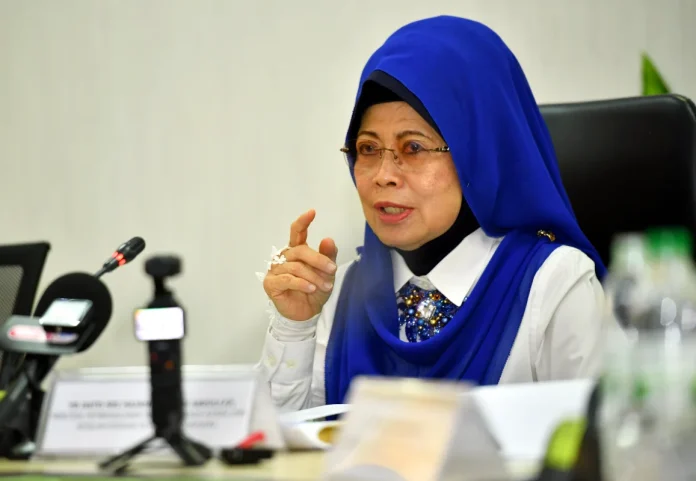KUCHING: Sarawak now has the lowest population growth in Malaysia and the largest population of aged people in the country.
State Women, Community Wellbeing and Family Development Minister Datuk Seri Fatimah Abdullah said she is worried with these developments.
“The population growth of Sarawak is the slowest among all the states in Malaysia, with the number of babies born annually having declined very sharply.
“From an average birth rate of 2.76 babies per couple in 2001, Sarawak now sees its birth rate dropped to 1.69 babies in 2023.
“We also have the most number of people aged above 60 in Malaysia.
“The drop in fertility rate and decline in marriages, added to the surge in ageing population annually, will have big socio-economic implications for Sarawak in the years ahead,” she said in her address at a symposium on fertility and women’s health here recently.
Fatimah said her ministry and the state health authorities are concerned that the decline in birth rate is no longer just in urban areas.
“Rural areas are also seeing decline in birth rates, just like in urban areas,” she said.
Health issues and late marriages are determining factors, she said.
Her ministry is carrying out health awareness campaigns in rural districts to educate women and family on topics related to population and health.
Fatimah had last year already expressed concern that the young generation of Sarawakians are not getting hitched quick enough, not making babies at the pace of previous generations and their fertility is also on the downside.
Adding to this predicament, the number of Sarawakians hitting the 60-year “senior citizen” mark is high every year. Those aged 60 and above already make up 15% of the state population.
Elaborating on the matter while attending a community event in Sibu town later, Fatimah said the figure is expected to double by 2028.
“To make things more worrying, young Sarawakians are not getting married at the rate of previous generations.
“The number of (new) babies Sarawak had annually was about 40,000 previously.
“Now, the number of new babies yearly has reduced to only about 20,000 in Sarawak.
“The fertility level is on the decline too.”
Fatimah said her ministry is carrying our a statewide programme to look into the issue.
The ministry is liasing with Swinburne University, Universiti Sarawak Malaysia and Curtin University in Miri to conduct a comprehensive census on the population composition and to work out detailed planning to care for more aged people every year, she said.
Her ministry wants to also study the measures being taken by governments of developed countries to care for their elderly.
Sarawak needs to introduce such measures into its community planning without delay, she added.
Sarawak has a population of some three million people, with about a million living in rural districts across the vast state.








